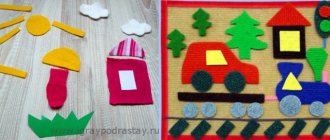On the way to growing up
Children grow up, explore the world, acquire new skills, gradually getting used to situations, people, relationships, rules. Learning to cope with daily challenges like adults requires years of patient training.
The age from 2 to 5 years is the most vulnerable in terms of the stability of the child’s psyche. The lack of necessary speech and social skills imposes certain restrictions on the ability of children to find an acceptable way out of difficult situations from the point of view of adults. This is not easy at any age, and if a child who is not experienced enough, does not have the gift of persuasion, is unable to express his feelings and desires, and even does not always understand what is expected of him, loses control over his emotions, then one is even more surprised. nothing, this is more a norm than a violation of it. The result is outbursts of anger, whims, hysterics. There are few families unfamiliar with this disaster.
- Hysteria is a state of extreme emotional arousal that results in loss of self-control. In children of the first years of life, signs of hysteria can include screaming, squealing, crying, and stamping their feet. You can often see how the baby begins to bang his fists, throw objects, roll around on the floor, and sometimes even bang his head against the wall, bite himself and others.
- Parents who are already familiar with this phenomenon know that in a state of hysteria, children cannot perceive information received in the usual ways (gestures, glances, facial expressions, speech), and all exhortations turn out to be useless. Sometimes tantrums become so frequent and severe that they exhaust both the child and the adults.
- Don't believe anyone who tells you that parents cannot influence a child's bad temperament. Patience, will, wisdom and emotional stability of the adult himself are your main weapons against children's hysteria.
What are the reasons for the explosion of children's emotions, how should parents behave to prevent hysteria, what to do if it has already broken out, and when is specialist help needed?
Causes of tantrums in children
There are no hysterics without a reason, simply “due to bad character.” Any reaction has a stimulus, another thing is that it is not always as significant as the consequences, that is, hysteria. What can trigger it?
1. Lack of attention. If a baby notices that he can get a dose of parental attention only by bursting into hysterics, he will resort to this method more and more often; this is the tactic of young children. Adults who fall into this trap should reconsider their way of life: the child lacks your love, warmth and participation, and he is trying with all his might to find them. Frequent illnesses, impudent acts, hooliganism, antisocial behavior - these are manifestations of lack of attention from parents during school years. It’s better not to let it come to this. From an early age, try to set aside time every day for meaningful, interesting and very personal communication with your child, so that he does not need to seek confirmation of your love for himself with tantrums.
2. Inability to express your thoughts. The child cannot verbalize the desire that has arisen in him, convey his thought or need to an adult, he wants to be understood, but does not know how. This is the most common cause of angry outbursts and hysterics in children under 2–3 years of age. Teach your child to express his emotions in a more peaceful way. Communicate with your child as often as possible, read books - this will spur speech development, tell him how to behave in certain situations, how to voice his expectations.
3. Fatigue, lack of sleep, hunger easily become the cause of tantrums at the age of 1 - 2 years. For children prone to such emotional outbursts, a daily routine is very important. Maintaining the usual times for eating and sleeping is a prerequisite for their upbringing in order to prevent overexcitation from fatigue and, as a result, hysterics. The child is tired - it is necessary to create conditions for rest, he is hungry - he needs an urgent snack, he does not get enough sleep - put him to bed earlier. Avoid active games before bedtime, try not to go often to crowded or unfamiliar places: all this has a very stimulating effect on the baby’s psyche.
4. Illness. A universal reason for whims at any age, but the younger the child, the higher the likelihood of emotions breaking down into hysterics. Experienced parents know: if the baby is unusually capricious and easily loses patience, this may be a symptom of illness. Create a soft psychological atmosphere, do not demand from the child what he cannot do now.
5. Age crisis. Tantrums of this origin do not last long: they are associated with overcoming the so-called crisis of 3 years and end as soon as the child reaches a new stage of mental development. Willfulness, obstinacy, negativism, stubbornness and protest moods characteristic of children aged 2.5 - 3.5 years can result in hysterics, which are very difficult for parents to cope with without understanding the characteristics of this age stage.
6. Imitating adults. No matter how much adults might want the opposite, the natural children's desire to imitate their parents also extends to your not-so-best actions and reactions. It is useless to demand that a child follow certain rules of behavior if the adult does not follow them himself: he is easily frustrated, irritated, and loses self-control. Young children internalize parental behavior patterns because mom and dad are role models for them. The more time your child spends with you, the richer your communication, the more he will repeat you in himself. Adhere to the line of behavior that you would like to see in your pupil.
7. Miscalculations in education. Often, adults themselves provoke outbursts of anger and hysterics in children. They can be too straightforward and firm (if not harsh) in their demands on the child, which suppresses his independence and initiative. It often happens that parents do not pay enough attention to their child and are prone to connivance. The other extreme is excessive care for the child, when any of his wishes is fulfilled (sometimes ahead of schedule). Another mistake is the lack of clear rules of behavior and established boundaries of what is permitted. All this frustrates and disorients the child so much that he is unable to cope with emotions in a situation where his desires do not meet parental expectations. Poor interaction with your baby can cause tantrums from infancy onwards.
Although parenting plays a huge role in the behavior a child exhibits, it is only one factor. The root of the problem lies in the characteristics of the child’s psyche, namely, in the type of nervous system, or temperament.
What is hysteria?
Hysteria in a child is a developmental stage. Such outbursts occur in all children, it’s just that in some they are more pronounced, in others less, some quickly cope with the situation, and some do not. The baby expresses his emotions and desires in the only accessible way. Especially young children: they cannot tell mom or dad about their dissatisfaction in any other way.
Even at older preschool age, children can yell when peaceful methods do not work; the state of excitement begins to prevail over inhibition. But most often, older preschoolers know how to control their emotions, know the boundaries of what is permitted and behave accordingly.
Temperament and its influence on tantrums in children
There are several types of temperament, each with its own set of characteristics that determine the pattern of behavior. Using them, it is not difficult to find out what type of child’s nervous system is and, based on this, reduce the amount of stress in his life and help him adapt more easily to life situations.
Let's talk about the main types of nervous systems and how parents can avoid tantrums in children.
1) With a strong balanced mobile (sanguine) type of nervous system, strong processes of excitation and inhibition are well balanced. Such a child is usually in a good mood, gets along well with other children, adapts to different situations, and resolves conflicts easily and quickly. Lively, often changing impressions and activities, not keeping promises, easily trained, he rarely creates problems and gets angry, almost never gets nervous - only in very serious situations. But with systematic violations of the regime, such a baby can behave like a child with a weak type of nervous system. To bring him back into balance, it is important to maintain a daily routine, avoid crowded places and noisy games for a while, and offer him some new activity or hobby.
2) When strong excitation processes prevail over inhibition processes, we are talking about a strong unbalanced mobile type of the nervous system. This is a choleric person - a very sensitive and nervous child: he does not sleep for a long time, wakes up from every rustle, is noisy, impetuous, with sudden mood swings, quickly becomes exhausted, loves to be the leader and the center of attention. When a mistake is pointed out to him, he begins to get angry and scream. If this tactic works, parents need to be prepared for the fact that this method of achieving what they want will become entrenched as the main model of negotiations, and tantrums and scandals will become a way of life.
2.1. To prevent this from happening, a child with a choleric type of nervous system must be raised and taught patiently, unobtrusively and calmly - he will happily imitate adults in demonstrating restraint.
2.2. In this case, it is important for the parent to learn to recognize the moment when the child stops listening and begins to engage in confrontation, and immediately change the topic. From time to time it is necessary to tell him that his behavior is not always correct and acceptable.
3) With a strong balanced inert type of nervous system, which is otherwise called “phlegmatic”, strong inhibition processes are balanced with excitation processes with mutual inactivity. In this case, the child quickly falls asleep, eats well and gains weight; Such children are quiet, slow, calm, reasonable, and have difficulty switching to another activity. They are good friends and they themselves know how to value friendship, they are persistent and persistent, they always finish what they start, they are afraid of other people’s mood swings, they like solitude, when no one distracts them from a game, a book or thoughts. Phlegmatic people refrain from showing emotions, which makes it difficult to understand their true mood.
It makes sense for parents to teach such a child to overcome internal inertia, to involve him more often in noisy and active activities and games, not to rush to do everything for the child (because it is faster) and not to scold him for slowness: before starting any activity, he needs to collect his thoughts and understand what is required of him.
4) A weak, unbalanced, inert type of nervous system, which is also known as “melancholic”, is characterized by weakness in the processes of excitation and inhibition. A melancholic child is very impressionable, vulnerable, self-absorbed and withdrawn, uncommunicative, anxious, prone to fears, avoids conflicts, cannot tolerate changes in life, has an unstable appetite and sleep problems. Despite low self-esteem, he knows how to adequately analyze feelings and emotions. When hysterical, he does not fly into a rage and does not scream, but whines for a long time until they pay attention to him. In a situation of stress, the nervous system of this type will be paralyzed, the child will lose control of himself and is capable of unpredictable reactions.
A baby with a weak, unbalanced, inert type of nervous system needs regular rest breaks, and it is very important to involve him in household chores, turn to him for help more often (likes to be useful) and invite him into conversations with household members. In order not to provoke hysterics in such a child, it is better for parents to avoid noisy places and activities, as well as sudden changes in the baby’s life.
Phlegmatic and choleric children are more prone than others to severe hysterics, and the former, due to the inertia of the nervous system, will take a long time to mature for anger, but when they reach the boiling point, they will surpass even more energetic choleric people in the strength of their reaction.
How to raise a toddler prone to tantrums
A visual child should not be frightened, even as a joke. Otherwise, a huge sensory range remains fixed in fear for one’s life. And this, naturally, is accompanied by all sorts of phobias, fears, panic, and hysterics.
A visual child should not have pets. Otherwise, the desire to build emotional connections will be directed in the wrong place - to the animal, and not to people.
True, most little viewers are very moved at the sight of cute pets and ask to get them for themselves
But it is important for parents to know that by directing their emotions towards an animal, the child follows the path of “least resistance”, because building connections with people is much more difficult. At the same time, the spiritual connection with the animal will always be due to human connections
That is, in the company of peers, the child will socialize worse - he will be afraid that he will be offended or hit, will be painfully worried when he is teased, and will distance himself from the company of other children. There is another risk: the lifespan of pets, alas, is short. If a cute animal is killed or lost, the visual baby experiences a sharp break in the emotional connection and reacts psychologically - seriously grieves. There are also physical consequences: the child’s vision may be significantly reduced. This is how the most sensitive area of little spectators—the eyes—reacts to superstress.
Visually impaired children should not be taken to funerals. Even if you are faced with a farewell ceremony near the entrance, it is better to take the child away as soon as possible. The difficult emotional states of people at funerals and the special visuals (wreaths, coffin) are then imprinted on the child’s psyche for a long time and can fix him in fear of death.
You can't read fairy tales in which someone eats someone. Evolutionarily, the first fear in the visual vector arises in ancient times precisely in connection with the danger of being eaten (by a predator or a cannibal). Any plots of this kind in fairy tales go straight into the child’s unconscious fear and significantly traumatize him.
Parenting Tactics and Strategies
What should parents do to prevent hysterics? What is the best tactic for adults to deal with in a situation where it has already begun?
1) Avoid hysterics.
An explosion of emotions is easier to prevent than to stop. Try not to get hysterical. Monitor changes in mood (dissatisfaction, irritation, tearfulness) and be prepared to distract your child from a situation that could potentially lead to a negative reaction on his part. Draw his attention to something very beautiful, say something unexpected. Be diplomatic, soften your tone, avoid direct instructions. Sometimes it is enough to express sympathy for a child’s bad mood or condition to prevent unwanted expressions of emotions. Help your baby relax: sit him on your lap, hug him, talk to him, stroke his head. Such tactics only work before hysteria or at the very beginning.
2) Understand the reasons.
Think about what caused the hysterical attack: fatigue, hunger, violation of agreements? Or was the child seeking your attention? If you know the true reason for what is happening, it will be easier for you to understand how to proceed: it’s time to go home to rest, you need to have a snack or restore justice.
If a child is fighting for your attention, you need a more serious and comprehensive approach, which will require adjustments in communication with the baby. If a baby has to so sophisticatedly attract the attention of his mother and father, he obviously lacks parental participation and confirmation of the inviolability of the position of his beloved child.
3) Use energy for peaceful purposes.
Children are bundles of energy that can be splashed out at the first opportunity. Channel this energy into a peaceful channel: walk more, maintain a high level of physical activity, play sports. Ages from 1 to 4 years are the period of mastering basic motor skills. Help your child learn to skate, ride a scooter, ride a bicycle, swim, dance, play football or other ball games, run, jump, etc. Don’t forget about creative and intellectual development: drawing, modeling, mosaics, puzzles, reading, simple counting, construction sets, puzzles are a great pastime throughout the day, especially in the morning after waking up, in the afternoon when you need to take a break from physical activity, and in the evening before bed. A child who is constantly busy with something (of course, reasonably, with pauses), does not sit idle and does not die of boredom, simply does not have the strength and desire to waste energy on tantrums.
4) Communicate.
Stay in good contact with your child: read, play, communicate, organize joint activities and leisure time, involve the baby in family affairs, discuss topics from the life of adults that are acceptable at a given age, which are necessary for the little one to understand the issues of the world order. How shops and airports work, why vacations are given only once a year, what professions there are, why people study and go to work, how and what adults spend their earned money on, how the products that end up on our table are grown and produced. By communicating with your baby not only about children's topics, you maintain a high level of trust and avoid generational conflict. It is always easy for you to find a common language with your child, and your baby does not feel too small, “not old enough” to understand something and learn something. This is extremely important both for self-esteem and for the calm and confident social development of the child.
5) Explain yourself.
In a situation of conflict of interests, your “no”, “you can’t”, “this is how it should be” is not enough. If you expect your child to behave in a certain way or perform certain actions, be clear about it. Sit down so that you are at eye level with your baby. Calmly, but firmly and in a friendly manner, explain what and why is now expected of him: to walk on the playground he must wear shoes, to play with other children he must stop taking away other people’s toys, etc.
Sometimes the baby may refuse to cooperate with you, bargain, or put pressure on you. In this case, change the subject, say something unexpected, distract him with any other object, an invitation to play, or a change of location.
If the child does not switch, do not start begging, bargaining and putting pressure on him - this only fuels the need for attention, which is often the cause of children's tantrums.
6) Negotiate.
Before going to the supermarket together, explain to your child what purchases you are going to make. A cart filled with groceries is not something that mom wanted to buy for herself, it’s for the whole family, including him. Explain why the child cannot demand something for himself if there was no prior agreement that he himself chooses the type of yogurt or the color of the toothbrush. You also go to a children's store for a specific purpose, and a huge box with a construction set is not an alternative to a small teddy bear, which was the original goal.
Explain to your child the reason for your refusal. He must learn that desires are not fulfilled on demand, that all serious purchases must be carefully thought out, timed to coincide with an important event, that for this purpose money must be specially set aside. It is good if children from an early age learn from their parents that negative emotions in response to refusal are destructive, do not benefit, and most importantly, do not solve the problem.
7) Teach your child to express dissatisfaction in a civilized way.
Tantrums happen because young children do not have other, more acceptable ways to express their feelings. Let your child know that there is nothing wrong or strange about being in a bad mood from time to time; it happens to all people. Teach him phrases that he can use to describe his state: “I’m hungry,” “I’m sad,” “I’m angry,” “I’m bored.” Praise your child when he expresses in words what is on his mind.
 Don't react.
Don't react.
Of course, you cannot ignore a child’s tears. But if you are convinced that this is hysterical manipulation, when your capricious person controls the situation and deliberately screws himself up to get what he wants, and the “degree” only increases, you can try to pretend that this scene does not bother you.
If the hysteria has already begun, you expressed sympathy for the child, tried to talk to him and are now sure that his behavior is not related to objective reasons (hunger, fatigue, pain), continue to do your business and do not react. The baby will understand that there are no spectators, and will stop resorting to hysterics in order to achieve what he wants. In any case, he should receive a clear signal that his violent expression of emotions will not change your decision.
Psychologists advise that if your presence only fuels hysteria associated with manipulation, or if you feel that you are starting to lose your temper, simply leave the child alone. After your baby has calmed down, you can tell him that you are glad that he was able to cope with his feelings and that you understand them well.
There is an opinion that it is impossible to ignore a child during a hysteria, as this can cause him injury. This is true of uncontrollable hysterics, when the baby himself does not know why he behaves this way. But if we are talking about something that the child asks to buy, it is very important for the parent to be persistent. In this way, you will show that it is impossible to “force” another person to fulfill desires - in this case, using psychological pressure in the form of hysteria. This way the child will learn a lesson and understand that people have boundaries that should not be violated.
We advise you to read the book by psychologist Julia Gippenreiter “Communicate with a child. How?” in order to better understand your child and the reasons for his behavior.
9) The main thing is safety.
Ignoring tactics are only possible in situations where you are sure that the child is safe. Make sure that he is not in danger: a tantrum can start in a children's toy store or next to a busy highway. Take your child away from the source of potential danger, even if this means taking advantage of the position of a stronger adult. Refrain from showing irritation and aggression: confidently but calmly take the baby into a strong hug and take him to a safe place.
10) Stay calm.
If your child has lost control of himself, he needs you with a cool and clear mind. Take a deep breath (preferably several) and try to maintain your composure. Increased heart rate, irregular breathing, perspiration on the forehead, sweating, feelings of frustration, annoyance, anger, resentment and humiliation (in the presence of strangers) are an incomplete list of reactions that you may experience in response to a child's tantrum. Don't show it, remain calm. If the child feels that he has touched your nerve, he will continue to put pressure on your sore spot. Don't yell back, demonstrate the behavior you expect from your little rebel. It is important that the algorithm of your reactions to hysteria remains unchanged.
11) Do not bribe or punish.
You want to please your baby after he was very upset, perhaps you are tormented by remorse, trying to make amends and... making a serious mistake. Rewarding a child with a toy, rides, or some rare privilege after a violent tantrum means reinforcing unwanted behavior. The kid is smart enough to connect a tantrum in the morning with a trip to the toy store in the evening.
Hysteria is the reaction of a child who has not learned to control his emotions, and this is more his trouble than his fault. After the baby’s emotions have subsided, act as if nothing happened, do not remind him of what happened. Hysterics should also not have any negative consequences. It is unacceptable to punish a child for lacking self-control and effective negotiation skills.
Remember that you are not alone in this situation. Many children behave this way at an early age, until they reach the level of speech development that would allow them to verbalize demands and arguments. They grow up, find themselves in different life situations, observe how their parents and other immediate environment cope with social challenges, and learn the most appropriate tactics and strategies of behavior for themselves.
Tips for parents
Most of the reasons for hysterical behavior in children are related to the actions of adults. This may be an incorrect reaction to the whims of the baby, unhealthy relationships in the family, etc. It will be possible to eradicate the child’s tendency to hysterical manifestations if we remove the main factors influencing this.
To prevent a child from falling into hysterical crying for any reason, long and fruitful work by adults is required.
It is important for parents:
- learn to react correctly to whims: you cannot indulge them, otherwise they will continue to manifest themselves;
- eliminate emotionality in communication, swearing in the family or with strangers: you need to talk to the baby strictly, but calmly, not allowing your voice to rise; By breaking this rule, parents run the risk of hearing the same statements (and in the same tone) addressed to them in the future from the lips of their four-year-old child;
- do not allow assault: thinking that this is how parents show that they are right and have authority, they cause fear in the child, which is often the cause of hysterical attacks; This is how the child’s trust in adults is undermined;
- follow the threats expressed: if the baby cries when trying to assemble a picture from a puzzle, and you threaten to throw away the object of concern, you need to get rid of it; if threats are not carried out, the child will soon understand that all these are empty words;
- eradicate “double standards”: raising a child by both mother and father should follow the same pattern; it is impossible for the father to allow his child to do something that the mother does not approve of (and vice versa).
Considering all this advice from psychologists in relationships with a child, it will be easier to deal with hysterical manifestations. The baby will realize the authority and rightness of the parent, that he wants to help and not harm.
Preventive measures
Preventive measures, also known as general rules of prevention, consist of minimizing the risks of hysterical manifestations in children. So that problems with hysterics do not have to be resolved in consultation with a psychologist, parents need to prevent them. The following prevention features will be important:
- minimizing the risk of situations favorable for the occurrence of hysteria: this concerns the organization of pastime, calm communication with all family members, moderate attendance at creative and sports sections;
- adherence to the regime: maintaining the daily rhythm of wakefulness and rest, proper nutrition, etc.;
- teaching the child to be independent: by developing the ability to make independent decisions and self-care skills, parents will help the child endure stressful situations more easily, and the risk of hysterical manifestations in the future will decrease;
- establishing parental authority, education: a child from an early age must understand the importance of an adult’s authority; there is no need to indulge the wishes of a younger family member;
- learning to counteract one’s own feelings: if a child is crying, you need to tell and even convince him that this is not worth doing; Show by example how to deal with such situations.
It is very important to adhere to all these recommendations so that the child grows up mentally healthy and begins to understand that there is no need to achieve something with tears and screams. You can get what you want in a more adult way - through a calm dialogue with your parents.
Adults should listen to their child and give him the opportunity to make independent choices. If everything is done correctly, the baby will soon understand that he is satisfied with the new attitude of his loved ones, and such problems will arise less often.
If the tantrums don't go away
If tantrums are repeated regularly in a child, continue after he reaches the age of 4 years, are overly emotionally charged, have serious consequences (loss of consciousness, harm to himself and others), are accompanied by sleep disturbances, appetite, aggression, bad mood, parents may need to consult a neurologist.
- In any case, if the baby is prone to hysterics (due to temperament), a gentle daily routine, adequate sleep, balanced nutrition, reasonable physical and intellectual activity in terms of load and duration during the day, quiet games in the evening, friendly, but with clear boundaries of permissible attitude with other family members, the correct tactics for parents to behave during a hysteria is the minimum set of educational measures that will help restore calm in the house.
- If children's tantrums have become the norm for your family, then there is no shortage of viewers. Whether a child seeks your attention through bad or good behavior is not important, the main thing is that he gets what he wants: the presence of parents, their active emotional involvement, and sometimes bonuses in the form of material incentives.
- You should never give in to your child’s persuasion, bribery, or attempts to pity you, otherwise you will reinforce in him the behavior that you are trying to resist. If at the peak of hysteria your nerves can’t stand it and you agree to meet your child’s entreaties, then you are sending an unambiguous signal that he managed to find an effective tactic that allows him to get what he wants.
- To avoid becoming an object of manipulation by your child, do not pay attention to those actions and reactions that you find undesirable. Praise often for the best performances and ignore the worst ones. Over time, your baby will understand what behavior you expect from him.
- If the level of physical, emotional and intellectual stress is so great that the child loses control of himself due to fatigue, it is necessary to seriously reconsider the lifestyle and daily routine in order to bring it into line with the age and psychological needs of your baby.
Remember: hysteria is not a manifestation of a child’s bad temper, which you will have to endure for the rest of your life. This is a symptom of an underlying problem, and you can solve it if you show compassion, patience and understanding of your baby's feelings. Your reward will be a warm, sincere and trusting relationship with your own child, and raising him will be an exciting joint journey from childhood to the adult world.











